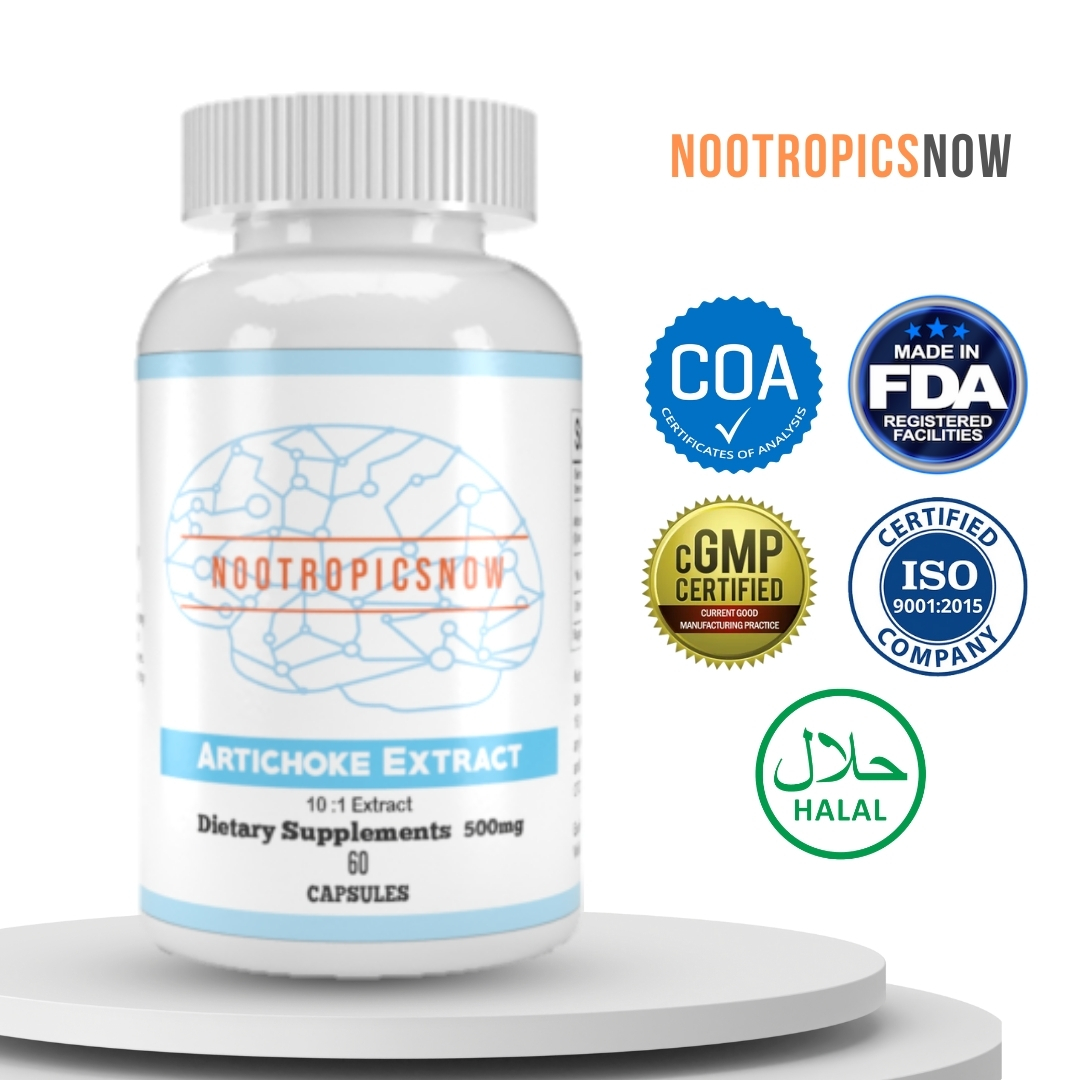Tynept Tablet Uses: Benefits & Side Effects

Tynept Tablet Uses: A Comprehensive Guide
Tynept tablet, containing the active ingredient tianeptine, is an antidepressant medication primarily used to manage major depressive disorder (MDD) in adults. Although tianeptine is not approved by the FDA in the United States, it is prescribed in several other countries. Understanding its uses, potential benefits, and safety considerations is crucial for patients and healthcare providers alike.
What is Tynept (Tianeptine)?
Tianeptine, marketed under the brand name Tynept among others, is a unique antidepressant classified as a selective serotonin reuptake enhancer (SSRE). Contrary to typical selective serotonin reuptake inhibitors (SSRIs), tianeptine is believed to increase serotonin reuptake. Additionally, it modulates glutamate receptor activity and enhances brain-derived neurotrophic factor (BDNF) release, which are essential for neural plasticity and mood regulation.
Tianeptine’s Mechanism of Action: A Deeper Dive
Unlike many antidepressants that primarily target serotonin, norepinephrine, or dopamine levels directly, tianeptine influences these neurotransmitter systems in a multifaceted way. It enhances serotonin reuptake, meaning it helps remove serotonin from the synaptic cleft, but its primary benefits seem to stem from its effects on glutamate and BDNF. By modulating glutamate receptors, tianeptine may help to protect neurons from damage caused by stress and improve the brain’s ability to adapt and form new connections. BDNF, crucial for neuron survival and growth, is significantly increased by tianeptine, contributing to its antidepressant effects.
Primary Uses of Tynept Tablet
The primary indication for Tynept tablet is the treatment of major depressive disorder in adults. It may be considered an alternative when first-line antidepressants are ineffective or poorly tolerated.
Tynept for Major Depressive Disorder (MDD)
Tynept can help alleviate a range of symptoms associated with MDD, including:
Persistent Sadness: Reducing feelings of hopelessness and despair.
Loss of Interest or Pleasure: Restoring enjoyment in activities that were once pleasurable.
Changes in Appetite or Weight: Helping to stabilize appetite and prevent significant weight fluctuations.
Sleep Disturbances: Improving sleep quality, whether it involves insomnia or oversleeping.
Fatigue or Loss of Energy: Boosting energy levels and reducing feelings of exhaustion.
Difficulty Concentrating: Enhancing focus and cognitive function.
Feelings of Worthlessness or Guilt: Reducing negative self-perception and self-blame.
Suicidal Thoughts: Decreasing the frequency and intensity of suicidal ideation (though close monitoring is essential).
Managing Depressive Symptoms with Tynept
Studies have shown that tianeptine can be as effective as some tricyclic antidepressants (TCAs) and SSRIs in managing depressive symptoms. However, it is important to note that individual responses to antidepressants vary. What works for one person may not work for another. The prescribing doctor considers factors such as symptom severity, medical history, and potential drug interactions when determining whether Tynept is an appropriate treatment option.
Other Potential (Off-Label) Uses
While primarily prescribed for depression, Tynept may be used off-label for other conditions. Off-label use means that the medication is being used for a condition it has not been officially approved to treat.
Anxiety Disorders
Some studies suggest that tianeptine may possess anxiolytic (anxiety-reducing) effects. It may be prescribed for generalized anxiety disorder (GAD) or social anxiety disorder, particularly when anxiety symptoms are co-occurring with depression.

View Product
Post-Traumatic Stress Disorder (PTSD)
Preliminary research suggests potential benefits of tianeptine in managing some PTSD symptoms, such as anxiety, depression, and sleep disturbances. However, more robust studies are necessary to confirm these findings.

View Product
Irritable Bowel Syndrome (IBS)
Given the bidirectional communication between the brain and the gut (the gut-brain axis), some researchers have explored the use of antidepressants in managing IBS symptoms. Tianeptine may alleviate pain, discomfort, and mood disturbances associated with IBS in certain individuals.

View Product
Asthma
Interestingly, some earlier studies explored tianeptine’s potential role in asthma management. It was suggested that tianeptine might have anti-inflammatory effects that could benefit patients with asthma. However, this use is not common and requires further investigation.
Important Note on Off-Label Uses
It is crucial to emphasize that using Tynept off-label should only occur under the guidance and supervision of a qualified healthcare professional. The potential benefits and risks must be carefully weighed before initiating treatment for any condition other than MDD. The physician needs to assess the potential benefits, assess for possible side effects, and decide whether to prescribe.
Dosage and Administration
The typical dosage of Tynept tablet varies depending on the individual and the specific condition being treated. However, a common dosage regimen involves taking the tablet two to three times per day. It’s crucial to adhere to the doctor’s prescribed dosage.
Recommended Dosage Guidelines
Adults with MDD: The usual starting dose is typically 12.5 mg taken three times daily.
Elderly Patients: Lower doses may be recommended for elderly individuals due to potential differences in metabolism and sensitivity to the medication.
Patients with Renal or Hepatic Impairment: Dosage adjustments may be necessary for individuals with kidney or liver problems, as these conditions can affect how the body processes the drug.
Important Considerations for Administration
Timing: Tynept can be taken with or without food. However, taking it at consistent times each day can help maintain stable blood levels of the medication and improve its effectiveness.
Missed Doses: If you miss a dose, take it as soon as you remember. However, if it’s almost time for your next dose, skip the missed dose and continue with your regular dosing schedule. Do not double the dose to make up for a missed one.
Discontinuation: Abruptly stopping Tynept can lead to withdrawal symptoms. It is essential to work with your doctor to gradually taper the dose when discontinuing treatment.
Potential Side Effects of Tynept
Like all medications, Tynept can cause side effects. Most side effects are mild and temporary, but some can be more serious. It is important to be aware of potential side effects and to report any concerning symptoms to your doctor promptly.
Common Side Effects
Common side effects of Tynept include:
Drowsiness: Feeling sleepy or fatigued.
Dry Mouth: Experiencing a persistent sensation of dryness in the mouth.
Constipation: Having difficulty passing stools or experiencing infrequent bowel movements.
Headache: Experiencing mild to moderate headaches.
Dizziness: Feeling lightheaded or unsteady.
Stomach Pain: Mild discomfort in the stomach area.
Nausea: Feeling sick to your stomach.
Changes in Appetite: Increased or decreased appetite.
Serious Side Effects
Although rare, some serious side effects can occur with Tynept use. These include:
Suicidal Thoughts or Behavior: An increased risk of suicidal thinking or behavior, particularly in young adults.
Mania or Hypomania: Activation of manic or hypomanic symptoms in individuals with bipolar disorder.
Seizures: Rarely, seizures have been reported in individuals taking tianeptine, particularly at high doses or in those with a history of seizures.
Liver Problems: In rare cases, tianeptine has been associated with liver damage.
Serotonin Syndrome: A potentially life-threatening condition that can occur when tianeptine is combined with other serotonergic drugs.
Recognizing and Reporting Side Effects
It’s crucial to monitor yourself for any side effects while taking Tynept. If you experience any concerning symptoms, contact your doctor immediately. They can assess the situation, determine whether the symptoms are related to the medication, and adjust your treatment plan accordingly.
Precautions and Contraindications
Certain individuals should exercise caution or avoid using Tynept altogether due to potential risks.
Individuals with a History of Substance Abuse
Tianeptine has a potential for misuse and addiction, particularly at high doses. Individuals with a history of substance abuse are at increased risk of developing tianeptine dependence.
Individuals with Bipolar Disorder
Tynept can trigger mania or hypomania in individuals with bipolar disorder. It is generally not recommended for this population unless used in conjunction with a mood stabilizer.
Pregnant or Breastfeeding Women
The safety of Tynept during pregnancy and breastfeeding has not been definitively established. It is generally recommended to avoid using Tynept during these periods unless the potential benefits outweigh the risks.
Individuals Taking Other Medications
Tynept can interact with other medications, including:
Monoamine Oxidase Inhibitors (MAOIs): Combining Tynept with MAOIs can lead to severe and potentially life-threatening reactions.
Selective Serotonin Reuptake Inhibitors (SSRIs): Combining Tynept with SSRIs can increase the risk of serotonin syndrome.
Opioids: Tianeptine can enhance the respiratory depressant effects of opioids.
Alcohol: Alcohol can worsen the side effects of tianeptine and increase the risk of liver damage.
Always inform your doctor about all the medications, supplements, and herbal remedies you are taking before starting Tynept.
Tynept and the Risk of Misuse
Tianeptine’s unique mechanism of action has led to its misuse as a recreational drug. High doses of tianeptine can produce opioid-like effects, leading to dependence and withdrawal symptoms upon cessation. This misuse is a growing concern, especially in regions where tianeptine is readily available. The availability of tianeptine online further exacerbates this risk.
Combating Tynept Misuse
Efforts to combat tianeptine misuse include:
Increased Awareness: Educating the public about the risks of tianeptine misuse.
Stricter Regulations: Implementing stricter regulations on the sale and distribution of tianeptine.
Monitoring and Surveillance: Monitoring online pharmacies and other sources for illegal sales of tianeptine.
Treatment Programs: Developing and implementing treatment programs for tianeptine dependence.

View Product
The Importance of Consulting a Healthcare Professional
This article provides general information about Tynept tablet and its uses. It is not a substitute for professional medical advice. Always consult with your doctor or other qualified healthcare provider before starting or stopping any medication. They can assess your individual needs, determine whether Tynept is right for you, and monitor you for any potential side effects.
Tynept Tablet Uses
Tynept tablet, containing the active ingredient Tianeptine, serves as a prescription medication primarily employed in the treatment of major depressive disorder (MDD). Consequently, it helps improve mood, cognitive function, and overall well-being. Its effects extend beyond just lifting mood, providing relief for various symptoms associated with depression.
Primary Uses of Tynept
Major Depressive Disorder (MDD) Treatment: The primary indication for Tynept is the management of depression. It is particularly useful in cases where other antidepressants have proven ineffective or cause intolerable side effects. Tianeptine acts on specific receptors in the brain, helping to restore chemical balance and alleviating depressive symptoms.
Anxiety Disorders: Beyond its antidepressant qualities, Tynept can be prescribed off-label for the management of anxiety disorders. Its unique mechanism of action sets it apart from traditional anxiolytics, potentially offering relief without the sedative effects associated with benzodiazepines. Moreover, this anxiolytic effect might also lead to improvement in physical manifestations of anxiety.
Somatic Symptom Disorder: Some healthcare professionals may prescribe Tynept for individuals experiencing somatic symptom disorder, where physical symptoms are prominent, but have no identifiable medical cause. By influencing the neurotransmitter systems in the brain, Tianeptine can help reduce the severity of these physical complaints. Hence, patients report less pain and increased function.
Stress-Related Disorders: In situations where chronic stress contributes to depressive symptoms or overall mental health disturbances, Tynept might offer therapeutic benefits. However, it should be utilized as part of a comprehensive treatment plan that includes stress-reduction techniques and lifestyle modifications. Therefore, it’s important to address the root causes of the stress rather than merely masking the symptoms.
Cognitive Enhancement: While not its primary indication, some studies suggest that Tianeptine may have potential cognitive-enhancing effects. This could manifest as improved memory, focus, and overall mental clarity. However, this aspect requires further research and validation. In light of these benefits, some users might combine Tynept with other nootropics.
Mechanism of Action
Tynept distinguishes itself from other antidepressants through its unique mechanism of action. Instead of simply inhibiting the reuptake of neurotransmitters like serotonin or norepinephrine, Tianeptine modulates the activity of glutamate receptors and affects the release of brain-derived neurotrophic factor (BDNF). Consequently, it is crucial to understand these actions:
Glutamate Receptor Modulation: Tianeptine primarily affects the glutamate system, which is the primary excitatory neurotransmitter in the brain. It is believed to enhance the reuptake of glutamate, which differs from most antidepressants that mainly target serotonin or norepinephrine.
BDNF Release: By influencing glutamate transmission, Tianeptine increases the release of BDNF, a protein crucial for neuronal survival, growth, and plasticity. BDNF plays a vital role in the formation of new connections between brain cells, which is essential for mood regulation and cognitive function. As a result, improved neural plasticity leads to better adaptation to stress and environmental stimuli.
Serotonin and Norepinephrine Impact: While the primary mechanism involves glutamate and BDNF, Tynept also impacts serotonin and norepinephrine levels. It can increase serotonin levels in some brain regions, although its effects are not as direct as SSRIs. Similarly, it modulates norepinephrine release, further contributing to its antidepressant effects.
Neuroplasticity: Tianeptine promotes neuroplasticity, allowing the brain to adapt and reorganize itself by forming new neural connections. This is particularly important in depression, where chronic stress and inflammation can impair neuroplasticity. Therefore, treatments like Tynept might aid in reversing these effects.
HPA Axis Regulation: The hypothalamic-pituitary-adrenal (HPA) axis, a central part of the stress response system, is also influenced by Tianeptine. By regulating the HPA axis, Tynept helps stabilize cortisol levels and reduce the damaging effects of chronic stress on the brain. In other words, this regulation leads to a more balanced stress response.
Dosage and Administration
The appropriate dosage and administration of Tynept are critical to ensure its effectiveness and minimize the risk of side effects. Therefore, healthcare professionals typically individualize the treatment based on patient-specific factors:
Standard Dosage: The typical recommended dosage of Tynept is usually 12.5 mg taken three times daily. This may vary based on the individual’s response to the medication and any concurrent medical conditions. Consequently, following the doctor’s exact prescription is essential.
Administration Guidelines: Tynept tablets should be swallowed whole with a glass of water. It can be taken with or without food, although consistency in timing is recommended to maintain stable blood levels. As such, taking it at the same times each day helps maximize its benefits.
Gradual Adjustment: Healthcare providers often start with a low dose and gradually increase it to minimize side effects. This allows the body to adjust to the medication and helps identify the optimal dosage for each patient. Therefore, it’s important to communicate any unusual symptoms or concerns during this phase.
Duration of Treatment: The duration of Tynept treatment varies depending on the severity of the depression and the patient’s response. Some individuals may require short-term treatment, while others might benefit from long-term maintenance therapy. In that regard, a doctor’s guidance is paramount.
Missed Dose: If a dose is missed, it should be taken as soon as remembered, unless it is almost time for the next dose. In such cases, the missed dose should be skipped, and the regular dosing schedule should be continued. However, double dosing should always be avoided.
Potential Side Effects
Like all medications, Tynept can cause side effects, though not everyone experiences them. Therefore, patients should be aware of potential adverse reactions and promptly report any concerns to their healthcare provider. Here are some potential side effects associated with Tynept:
| Common Side Effects |
Less Common Side Effects |
Rare but Serious Side Effects |
| :———————————- |
:————————————- |
:——————————————— |
| Drowsiness |
Nausea |
Suicidal thoughts |
| Dizziness |
Vomiting |
Worsening depression |
| Headache |
Constipation |
Serotonin syndrome (rare) |
| Dry mouth |
Blurred vision |
Allergic reactions (rash, itching, swelling) |
| Loss of appetite |
Insomnia |
Liver problems (jaundice, abdominal pain) |
| Stomach pain |
Irritability |
Seizures |
| Feeling unwell (malaise) |
Fast heart rate |
Mania or hypomania |
| Sore throat |
Agitation |
Severe skin reactions |
Common Side Effects: Common side effects include drowsiness, dizziness, headache, dry mouth, loss of appetite, stomach pain, feeling unwell, and sore throat. These side effects are typically mild and resolve on their own within a few days. If these symptoms persist or worsen, medical advice should be sought.
Less Common Side Effects: Less common side effects include nausea, vomiting, constipation, blurred vision, insomnia, irritability, and a fast heart rate. These side effects are less frequent but still important to monitor. If these side effects are bothersome, a doctor may recommend adjustments to the dosage.
Rare but Serious Side Effects: Rare but serious side effects may include suicidal thoughts, worsening depression, serotonin syndrome (rare), allergic reactions, liver problems, seizures, mania, or severe skin reactions. These side effects require immediate medical attention. Therefore, recognizing them early is crucial.
Withdrawal Symptoms: Abruptly stopping Tynept can lead to withdrawal symptoms such as anxiety, insomnia, dizziness, headache, and flu-like symptoms. Gradual tapering of the dosage under medical supervision is essential to minimize these effects. Consequently, the medication shouldn’t be stopped without professional advice.
Precautions and Contraindications
Certain precautions and contraindications must be considered before initiating treatment with Tynept to ensure safety and efficacy. Therefore, healthcare providers should carefully assess patients’ medical history and current medications:
Allergies: Tynept should not be used in individuals with a known allergy to Tianeptine or any of the inactive ingredients in the tablet. Allergic reactions can range from mild skin rashes to severe anaphylaxis. Consequently, reviewing the drug’s ingredients beforehand is advisable.
Monoamine Oxidase Inhibitors (MAOIs): Concurrent use of Tynept with MAOIs is contraindicated due to the risk of serotonin syndrome. There should be a washout period between discontinuing an MAOI and starting Tynept. Hence, a complete medication history is essential.
Pregnancy and Breastfeeding: Tynept should be used with caution during pregnancy and breastfeeding. Limited data exist on its safety in these populations, and the potential risks should be weighed against the benefits. Thus, a healthcare provider’s consultation is necessary.
Liver and Kidney Disease: Individuals with significant liver or kidney disease may require dosage adjustments or may not be suitable candidates for Tynept treatment. These conditions can affect the metabolism and excretion of the drug. Therefore, close monitoring is required in these patients.
Bipolar Disorder: Tynept should be used with caution in patients with bipolar disorder due to the risk of triggering mania or hypomania. Mood stabilizers may be required in combination with Tynept to prevent these episodes. So, monitoring mood fluctuations is necessary.
History of Substance Abuse: Given its potential for misuse, Tynept should be prescribed cautiously in individuals with a history of substance abuse. Close monitoring is warranted, and alternative treatments may be considered. In these cases, a comprehensive treatment approach is crucial.
Drug Interactions
Tynept can interact with various medications, potentially altering their effects or increasing the risk of side effects. Therefore, it is essential to inform healthcare providers of all medications, supplements, and herbal products being taken:
MAOIs: Concurrent use with MAOIs is contraindicated due to the risk of serotonin syndrome. Thus, this combination should be avoided.
Selective Serotonin Reuptake Inhibitors (SSRIs): Combining Tynept with SSRIs can increase the risk of serotonin syndrome. Close monitoring is required if these medications are used together. Therefore, caution should be exercised.
Nonsteroidal Anti-Inflammatory Drugs (NSAIDs): NSAIDs can increase the risk of gastrointestinal bleeding when taken with Tynept. Caution is advised, especially in older adults. As such, alternative pain relievers might be considered.
Alcohol: Combining Tynept with alcohol can increase sedation and dizziness. It is best to avoid alcohol while taking this medication. Consequently, patients should be advised accordingly.
Other Antidepressants: Concurrent use with other antidepressants can increase the risk of side effects. Healthcare providers should carefully consider the benefits and risks before prescribing multiple antidepressants. Therefore, a comprehensive medication review is required.
Storage and Disposal
Proper storage and disposal of Tynept are essential to maintain its effectiveness and prevent accidental ingestion or misuse:
Storage: Tynept tablets should be stored at room temperature, away from heat, moisture, and direct sunlight. They should be kept in a secure location out of reach of children and pets. Accordingly, proper storage helps maintain the drug’s integrity.
Disposal: Unused or expired Tynept tablets should be disposed of safely. Many pharmacies offer drug take-back programs, which provide a convenient and environmentally friendly way to dispose of medications. Alternatively, medications can be disposed of in household trash after mixing them with undesirable substances. Hence, safe disposal protects others.
Labeling: Always keep Tynept tablets in their original container with the prescription label. This helps prevent confusion and ensures that the correct medication is being taken. Thus, keeping the medication well-labeled is advisable.
Monitoring
Regular monitoring is essential during Tynept treatment to assess its effectiveness, detect any side effects, and adjust the dosage as needed. Therefore, patients should attend all scheduled appointments with their healthcare provider:
Mood Assessments: Regular mood assessments can help track improvements in depressive symptoms. Standardized scales and questionnaires are often used to monitor progress. As such, these assessments provide valuable data.
Side Effect Monitoring: Monitoring for side effects is essential to ensure that Tynept is well-tolerated. Patients should report any new or worsening symptoms to their healthcare provider. Thus, patient feedback is crucial.
Liver Function Tests: In individuals with liver disease or those at risk of liver problems, periodic liver function tests may be recommended. These tests can help detect early signs of liver damage. In this case, liver health is closely monitored.
Kidney Function Tests: Similar to liver function, kidney function should be monitored in patients with kidney disease or those at risk. These tests help ensure that the kidneys are functioning properly. Therefore, renal health is also important.
Suicidal Ideation: Monitoring for suicidal ideation is especially important during the initial stages of treatment and during dosage adjustments. Patients and caregivers should be educated about the signs of increasing suicidal thoughts. As a result, a safety plan is essential.
For individuals exploring options beyond traditional medication, some may consider supplements known as nootropics to potentially enhance cognitive function and manage stress.

View Product

View Product






